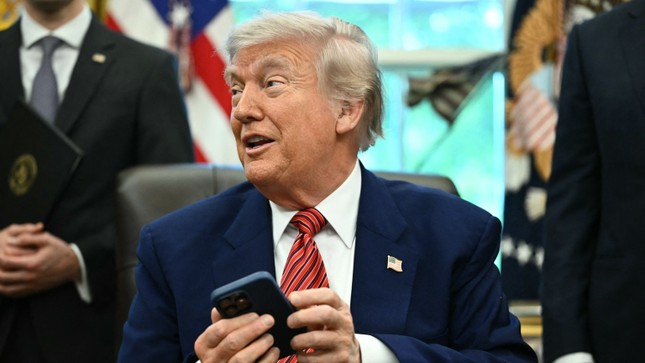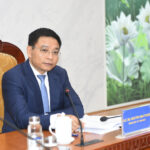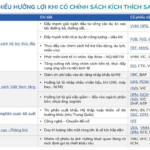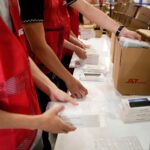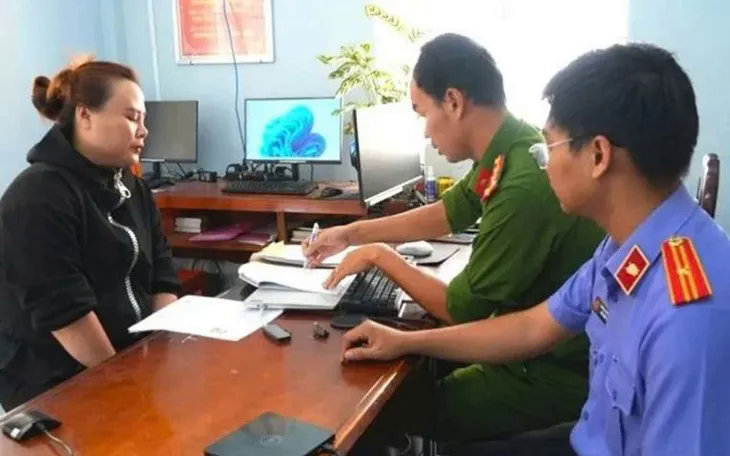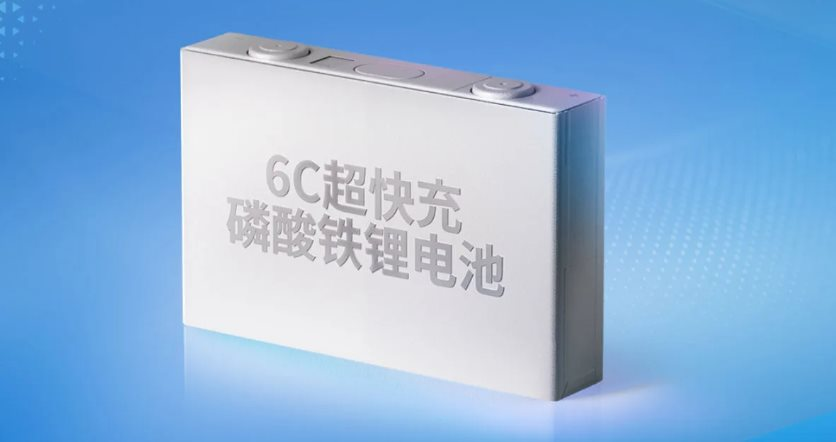Trump’s Tariff Threat to the Smartphone Industry
Via his social media platform, Truth Social, Trump announced a proposed 25% tariff on Apple’s iPhones unless they are manufactured in the US.
“I have informed Tim Cook of Apple a long time ago that I expected Apple to build factories in the US for iPhones & Macs, not in China. Same for many other American companies. If Apple doesn’t comply, big tariffs will be slapped on Apple, and all of these companies, making products in China. It’s very simple!” Trump wrote.
Just hours later, the former President extended the 25% tariff to all smartphone manufacturers, including Samsung.
“Samsung and anyone else who wants to send products into our Country and make big money…I’m saying a very strong 25% tax and it could even be higher than that,” Trump told reporters at the White House, adding that the new tariffs would take effect by the “end of June.”
It remains uncertain whether Trump will actually impose these tariffs on smartphones, or if his statements are primarily strategic attacks aimed at pressuring Apple—a company with which Trump is reportedly at ideological odds—into increasing its production in the US.
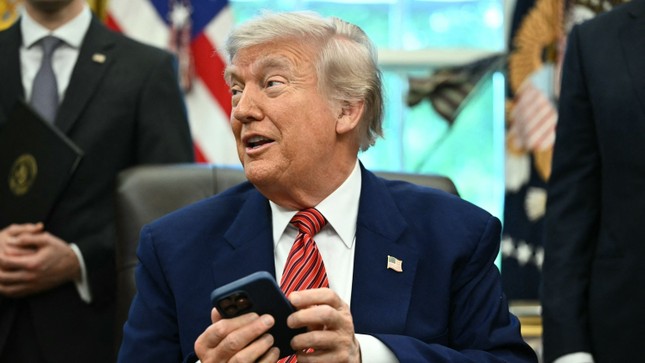
Trump threatens tariffs on iPhones and Samsung devices manufactured outside the US.
Should Trump enforce these tariffs, it could upend the smartphone industry, increasing device prices and making it challenging for Samsung and Apple to maintain their price competitiveness in the US market.
According to data from market analysis firm Counterpoint Research, Apple and Samsung account for approximately 80% of total smartphone sales in the US, with Apple holding the lion’s share at around 65% market share and Samsung at 18%, based on Q4 2024 shipment figures.
Samsung does not manufacture smartphones in the US. Nearly half of the tech giant’s global smartphone production comes from Vietnam, with the remainder produced in South Korea, India, Brazil, and Indonesia.
Smartphones destined for the US market—from flagship models to mid-range offerings—are primarily assembled in Vietnam, with some models also originating from India.
This means that Samsung’s upcoming product launches, including the anticipated Z Flip and Z Fold models slated for release in the latter half of the year, could fall under the proposed tariff regime.
Samsung’s leadership in Seoul, South Korea, declined to comment on the matter.
Samsung’s and Apple’s Response
Analysts suggest that if Trump follows through with the 25% tariff on smartphones not manufactured in the US, both Apple and Samsung will have no choice but to increase their product prices and pass the additional costs on to consumers.
Experts predict that US consumers could face price hikes of 20-30% for iPhone and Samsung Galaxy devices, depending on the model.
Such price increases could dampen consumer demand, which would undoubtedly harm sales, especially in key markets like North America, where premium smartphones hold a dominant position.
In the midst of Trump’s tariff frenzy, Samsung has taken steps to mitigate the impact of potential tariffs. During their latest conference call in April, Samsung indicated that they would consider relocating the production of certain TVs and electronic devices.
However, industry insiders maintain that shifting Samsung’s core smartphone manufacturing operations to the US to meet Trump’s demands would be complex and costly.
“Producing smartphones in the US just to avoid tariffs is not a viable solution. It’s not just about setting up new assembly lines; the entire supply chain would need to be rebuilt, which is costly and logistically complex, as raw materials and equipment would also need to be moved,” explained an industry expert.
The source added that US manufacturing would result in higher device prices due to higher labor costs, a less flexible workforce, and inadequate infrastructure, leading companies to potentially absorb the costs rather than shift production.
Similarly, Apple, which manufactures over 80% of its products in China and relies heavily on materials and critical components from China and the surrounding region, is unlikely to relocate iPhone production to the US in the near future, despite Trump’s pressure.
Ming-Chi Kuo, a well-known Apple supply chain analyst, implicitly countered Trump’s demands: “In terms of profits, Apple would be much better off absorbing a 25% tariff on iPhones bound for the US market than moving its iPhone assembly lines out of China.”
According to Korea Herald
The American-Made iPhone: A Pricey Surprise
The iPhone is an iconic smartphone brand, but what would happen if its production moved back to the USA? The cost of manufacturing in the States is significantly higher than in other countries, and this would have a huge impact on the final price tag. A potential price of $3,500 per unit is not out of the question, a stark contrast to the current pricing strategy and a huge barrier for consumers.
Samsung Reiterates Tax Refund Proposal to the Ministry of Finance for Samsung HCMC CE Complex in Ho Chi Minh City
Samsung Group is the largest foreign investor in Vietnam, employing approximately 100,000 Vietnamese citizens. The company’s significant presence in the country has had a profound impact on the local economy, creating a ripple effect of opportunities and contributing to the nation’s thriving business landscape. With its cutting-edge technology and innovative spirit, Samsung has not only boosted Vietnam’s economic growth but also played a pivotal role in elevating the country’s reputation as a desirable investment destination.
The Tax Cut Beneficiaries: Unveiling the Businesses Set to Thrive
As per the Balanced Scorecard (BSC), the government will accelerate the disbursement of public investment in expressway and railway projects, as well as aggressively pursue energy and oil and gas ventures. Furthermore, policies supporting consumption, tourism, and visa exemptions will be promoted to stimulate economic growth and development.
“J&T Express: Samsung Vietnam’s Trusted Technology Delivery Partner.”
J&T Express is proud to announce its partnership with Samsung Electronics Vietnam as their official logistics partner for tech product deliveries. This collaboration marks a significant step forward in enhancing the delivery experience for high-value electronic goods and reinforces customer confidence in online shopping.
“Removing Vietnam’s Steel from the Safeguard Exclusion List”
The UK Trade Remedies Authority has proposed removing Vietnam and five other developing countries from the list of exemptions to the safeguard measures on steel products. This proposal is a significant development, as it could have a substantial impact on the steel industry in these nations. With a potential removal from the exemption list, the steel industries in Vietnam and the other affected countries may face new challenges and obstacles in their trade activities with the UK. The proposal is currently under consultation, and the final decision is awaited. The outcome will undoubtedly shape the future landscape of the steel market, influencing trade relations and strategies for all involved parties.

